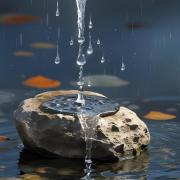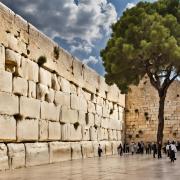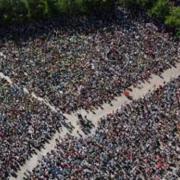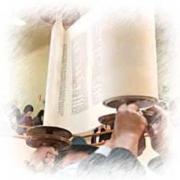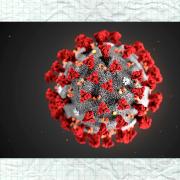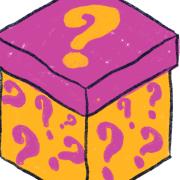The Mystery of The Lit Candle
Have you ever wondered why we light a candle during the Bedikat Chametz or Searching for the Leavened Bread? This may seem like an ancient ceremony to the outsider, but as always, there may be reasons for it, and we should look into it.
On the night of Bedikat Chametz, we use a candle and look for 10 pieces of bread that we hid before. Also, let me mention here that we use the lit candle on Motzeh Shabbat during the Havdalah. Why do we do that? Is there a connection between these two candles? I believe there is, so let's examine it closely.
The first time the fire is mentioned is in the Midrash for Parashat Bereshit, when Adam and Chavah went out of Gan Eden. When the night falls, it says that Adam gets scared since this is the first time he has experienced nighttime. Hashem told him not to worry since it is a normal occurrence. He taught him how to start a fire with stones, which gave Adam peace of mind and calmed him down. But I believe more could be added to this Midrash or maybe explained from a different angle.
Let's start with a question: how come Adam and Chavah ended up outside of Gan Eden?
In Parashat Bereshit, right after Hashem created the world, Hashem told Adam not to eat from the Tree of Knowledge; in turn, Adam told Chavah not to touch the tree. Later, when Adam wasn't around, Chavah was approached by a Nachash, a primordial snake. This is when the snake persuaded her to eat from the Tree of Knowledge by telling her Lashon Hara or slandering Hashem, and she fell for it. There are several opinions about the tree's fruit - apple, grape, bread, and others... but I strongly believe this tree had ready-to-eat bread growing as fruits.
So there was Chavah - she took the fruit of that tree - a piece of bread from the Tree of Knowledge, and right before she ate it, the snake placed his poison into it - and Chavah ate the poisoned bread. And at that moment, the Yetzer Hara or an Evil Inclination went into her, and then she made Adam eat it as well, and there they were with Yetzer Hara or Evil Inclination also known as - the bad character traits - jealousy, anger, hatred, dishonesty, rudeness, and more - deeply rooted in them, which are passed on to billions of people throughout the generations until today all across the world.
Hashem wasn't happy about this. He punished Adam, Chavah, and the snake, but humanity was still infected, and Hashem had to figure out how to somehow cleanse the people from it.
And this is what Hashem did.
Remember the time when Moshe Rabbeinu came to Egypt and took the Jewish nation out of Mitzrayim? In Parashat Beshalach, Hashem has given us manna in the desert—pure bread—food for the angels. It was bread that was digested fully by the body with no waste. There's a reason why Hashem has put millions of people in the desert on this diet—only one reason—to raise the nation spiritually to the level Adam HaRishon was at when he was in Gan Eden.
But later, when we get to Parashat Shelach, suddenly, the selected few get the idea of spying out the Land. Hashem is not so excited about this idea, but He still lets Moshe send out an expedition, which he does. After forty days, when they come back, what do they do? This time they slander the Land of Israel. Hashem tried to cleanse the nation from that original sin that happened in Gan Eden, and raise the nation to high spiritual levels by giving them manna, but they fell for the same sin again, and this time by slandering the Land. So, Hashem decided to kill all the males between the ages of 20 to 60 of that generation, and only their children went to Israel years later.
But the Evil Inclination was still inside those who went to Eretz Yisrael.
So, in Parashat Bo 12:11 it says, "So shall you eat it: your loins girded, your shoes on your feet, and your staff in your hand. You shall eat it in haste. It is a Passover offering to G-d." It continues in 12:34 & 39: "The people picked up its dough before it could become leavened, their leftovers bound up in their garments upon their shoulders. They baked the dough they took out of Egypt into unleavened cakes, for they could not be leavened, for they were driven from Egypt, for they could not delay."
So, for generations, eating unleavened bread—matzah, a pure bread with no chametz—has been set as a holiday of Pesach.
The Sages teach us that we should celebrate the night of Pesach and feel like we are leaving Mitzrayim. But I don't believe that by leaving Mitzrayim, they meant that we should leave any physical location. Our Mitzrayim is our OK with the current situation, our contentment with it, and our will to continue living in it. Because the moment we understand what happened, we understand that we have lost - and we have lost BIG.
On Motzeh Shabbat, when we make the blessing for a lit candle, we look at our fingernails, which remind us of Adam HaRishon, since it says in the Midrash that his whole skin was covered by fingernails like skin, but now we have nails only on our fingers and toes. But this is not the only loss it should remind us of. It should remind us that we no longer live in the Gan Eden. No longer have ready-to-eat bread growing on the trees, and have to toil daily for a piece of bread. We no longer have a close relationship with Hashem and thus live in the darkness. No Bet Hamikdash, and no Eretz Yisrael, with wars, diseases, hunger, death, conflicts, and a whole lot of troubles across the globe.
Therefore, while we look for chametz with a lit candle and gather the pieces of chametz - the leavened bread, we realize: Chametz, it is because of you we have lost so much. The life we have, and the life the whole world has is not what Hashem initially intended it to be - and instead, we suffer today because of the poison the snake put into the bread - which is the fruit of the Tree of Knowledge - which in turn has infected us, humans, with the Yetzer Hara or Evil Inclination from which we suffer daily. We take that bread and burn it, and with it, we annul all the Chametz that may be in our possession -- thus weakening its influence over us for the next 7 days.
And to all those who think that G-d has abandoned the Jewish nation, should know that He has neither abandoned nor given up on us.
He has commanded us to celebrate the Holiday of Pesach for seven days. And on this holiday, we are commanded to eat unleavened bread—the bread with zero chametz—the matzah. When we eat the matzah, we grow in our belief in G-d, and most importantly, in holiness. And this eventually will lead to the ultimate redemption, Mashiach, and Third Bet Hamikdash. May this happen speedily in our days. Amen!!
Shmuel Katanov





